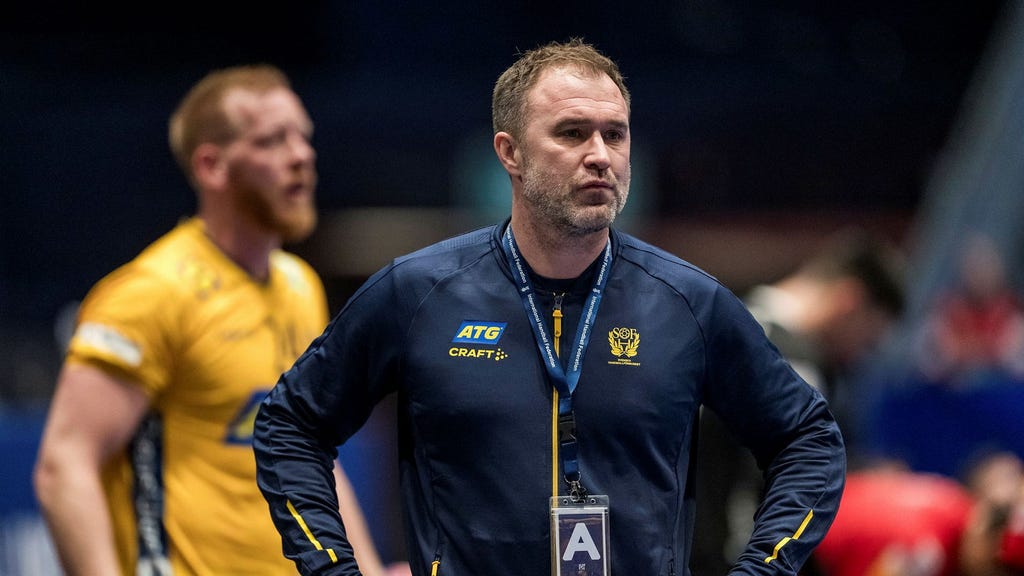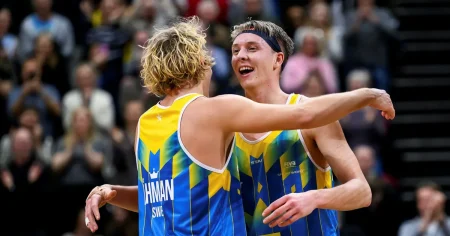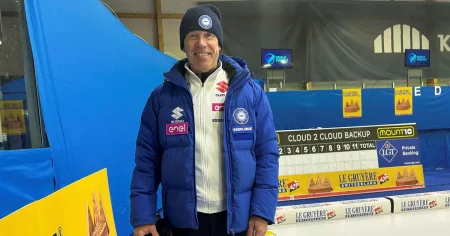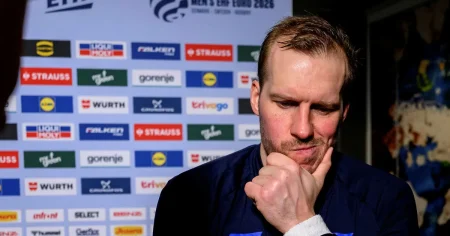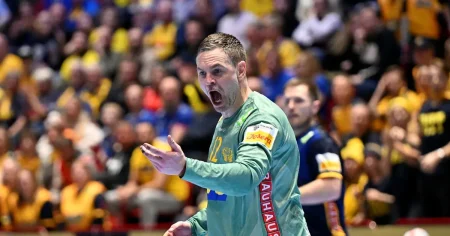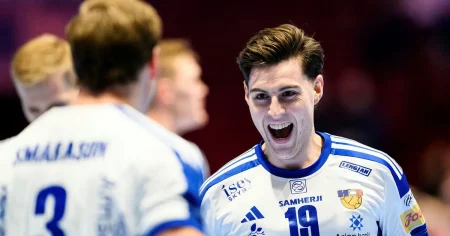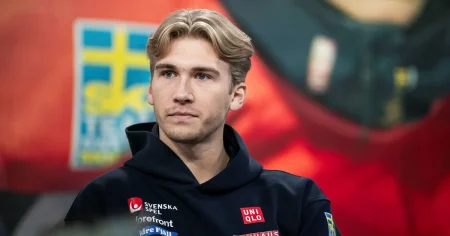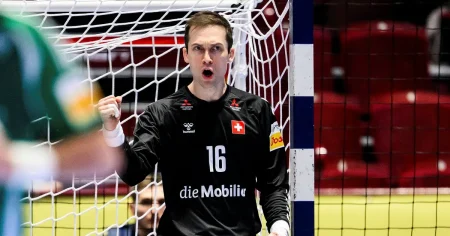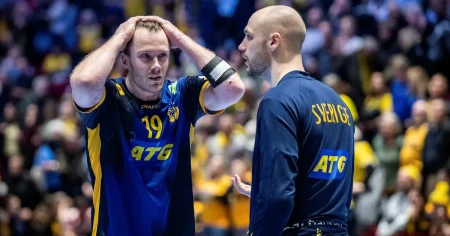Sweden’s handball team entered the World Championship facing significant defensive vulnerabilities, highlighted by the 19 goals conceded in the first half against Chile. This defensive fragility stems directly from the absence of key defensive stalwarts Oscar Bergendahl and Max Darj, both sidelined due to injury. Their absence created a gaping hole in the Swedish defense, particularly in the crucial central positions. The loss of these experienced players disrupted the team’s established defensive structure and forced coach Michael Apelgren to scramble for solutions, experimenting with new combinations and pairings just days before the start of the tournament. This lack of cohesive experience in the defensive lineup contributed significantly to the early struggles against Chile.
Apelgren, leading the national team in his first major championship, recognized the urgent need for improvement, especially with a crucial group stage finale against Olympic bronze medalists Spain looming. He emphasized the delicate balance between aggressive physicality and tactical discipline in effective handball defense. While acknowledging the importance of winning individual battles, Apelgren stressed that a purely physical approach, without tactical awareness, could easily lead to exploitable weaknesses. He called for his players to find the ”sweet spot” where assertive individual defense blends seamlessly with the overall team strategy. This balance proved elusive against Chile, with Apelgren audibly frustrated during timeouts as his players deviated from the pre-game plan. He acknowledged the difficulty of executing complex strategies under pressure but emphasized the need for greater adherence to the agreed-upon tactics.
The pre-tournament loss of Bergendahl, the reigning European Championship’s best defender, was a significant blow. The subsequent injury to Max Darj during a warm-up match against Iceland compounded the problem, leaving Sweden with a depleted and inexperienced central defense. Apelgren was forced to experiment with different combinations, pairing veteran Jonathan Carlsbogård with newcomer Felix Möller, a duo lacking significant game time together. This lack of shared experience and established communication within the defensive core further contributed to the team’s struggles in the early stages of the tournament. The challenge for Apelgren was not only to find suitable replacements but also to quickly forge a cohesive defensive unit capable of withstanding the pressure of world-class competition.
The second half against Chile offered a glimmer of hope. Sweden adjusted its defensive strategy, tightening the central defense and forcing Chile to attack from the wings, a tactical shift that proved effective. Apelgren expressed satisfaction with the team’s ability to adapt and improve mid-game, a positive sign heading into the crucial match against Spain. However, he acknowledged the significant step up in competition, recognizing that replicating the second-half success against a team of Spain’s caliber would require a much more disciplined and consistent performance.
Spain, despite undergoing a period of transition and rejuvenation, presented a formidable challenge, not just because of their individual talent but also their tactical acumen. Apelgren highlighted the contrast in playing styles between Scandinavian and Spanish handball, noting the Spanish emphasis on disrupting opponents’ rhythm and executing intricate game plans. He contrasted this with the Scandinavian focus on maximizing physical attributes and fast-break opportunities. Apelgren, a student of the game with a keen interest in tactics, admitted to drawing inspiration from Spanish handball, creating an intriguing tactical battle against his experienced Spanish counterpart, Jordi Ribera. This matchup, a rematch of the 2022 European Championship final, was poised to be a chess match of strategic adjustments and counter-adjustments, with the winner gaining a significant advantage in their quest for a medal.
Apelgren, balancing his role as national team coach with his club duties at Hungarian side Pick Szeged, felt well-prepared for the challenge. His experience coaching against many of the Spanish players in the Hungarian league provided valuable insights into their individual strengths and weaknesses, allowing him to tailor specific defensive strategies. Despite the early setbacks and the pressure of leading the national team for the first time in a major tournament, Apelgren expressed enjoyment of the experience. He relished the pressure of high-stakes matches and anticipated the tactical intricacies and fine margins that would define the latter stages of the tournament. He acknowledged that success or failure would likely hinge on small details – a clever tactical maneuver, a lucky bounce, a crucial save – and he appeared eager to embrace the challenge. The match against Spain promised to be a pivotal moment in Sweden’s World Championship campaign and a true test of Apelgren’s coaching acumen.





